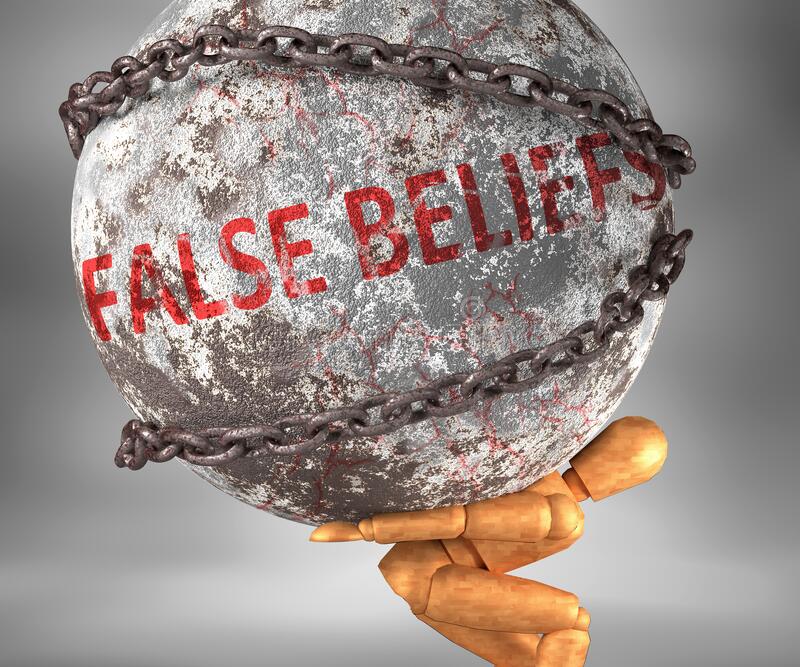Four False Beliefs
Shame
Shame that is a product of our acting out (I’ll refer to this as “post-shame”) is somewhat different than shame that was the precursor to our acting out (I’ll refer to this as “pre-shame”), although both weeds share the same roots.
As we looked at in detail already, pre-shame leads to discomfort that we feel we need to make go away. Typically, the deeper the pain, the more extreme our acting out behaviors become. Certainly, there is a wide gap between gorging on Oreos verses being a serial killer. But believe it or not, the toxic shame that underlies both examples might not be all that different. The serial killer probably allowed the shame in his or her heart to go unchecked, and to spiral progressively further down over the course of many years.
Every single time, after succumbing to my secret sin, I would be overwhelmed with a heavy cloak of shame. Sometimes I would cry out to God, asking Him to have mercy on my wretched ways. Other times I would just sob as messages of shame, guilt, and worthlessness ran through me. Suffice it to say, there was never a time after viewing pornography that I was glad I had.
 Four False Beliefs
Four False Beliefs
Post-shame typically presents itself in some sort of self-deprecating thoughts and feelings. I’ve read hundreds of books throughout my life, and another one of my all-time favorites is The Search for Significance by Robert McGee. This book is actually one of the top ten most read Christian books of all time!
McGee writes from the premise that every human being is on a constant search for significance (e.g., worth, meaning, purpose, identity). In his career as a Christian counselor that spanned several decades, McGee discovered that people tend to separate into four distinct tendencies in our relentless search for significance, even when we know consciously that these will not bring the ultimate fulfillment we are searching for.
The Performance Trap: “I must meet certain standards to feel good about myself.”
Approval Addict: “I must be approved by certain others to feel good about myself.”
The Blame Game: “Those who fail (including myself) are unworthy of love and deserve to be punished.
Shame: “I am what I am. I cannot change. I am hopeless.”
Once we’ve acted out our drug of choice, the enemy is right on our heels trying to convince us of how worthless we are for failing again, despite the fact that he is the one who urged us to do it. In my use of the phrase “drug of choice,” I’m employing a broad use of terms which could include meth as a drug or alcohol as a drug or marijuana as a drug, but also pornography or gambling or adultery or binge watching or overeating or sneaking Oreos as drugs as well.
| WRONG PLACE TO SEARCH | FALSE BELIEF | TYPICAL CONSEQUENCES |
| The Performance Trap | I must meet certain standards to feel good about myself | The fear of failure; perfectionism; drive to succeed; manipulation of others to achieve success; withdrawal from healthy risks |
| Approval AddicT | I must be approved of by certain others to feel good about myself | The fear of rejection; attempts to please others at any cost; overly sensitive to criticism; withdrawal from others to avoid disapproval. |
| The Blame Game | Those who fail (including myself) are unworthy of love and deserve to be punished | The fear of punishment; punishing others; blaming others for personal failure; withdrawal from God and others; drive to avoid failure |
| Shame | I am what I am. I cannot change. I am hopeless. | Feelings of shame, hopelessness, and inferiority; passivity; loss of creativity; isolation; withdrawal from others |
Through my own work as a counselor, I’ve come to agree with Robert McGee that the clients who seek counseling due to the pain of unresolved toxic shame seem to disperse into these same four groupings. He went even further in his book to break down the most common consequences of these four false beliefs. If these four groupings seem to fit your story, you may want to read his amazing book sometime on your own. It was life-changing for me.
———-
Soul health and spiritual maturity cannot be separated. Our counselors are ordained Christian ministers as well as certified and licensed Christian counselors. We are able to help you experience freedom from shame, anxiety, depression, or marriage / relationship conflict with methods that are purely Christ-centered. Please click on this link to learn much more about how our DEPRESSION COUNSELING can help you become a more authentic follower of Christ, and help you find freedom from identity dependence.
Life Training offers convenient sessions at our office in Louisville, Kentucky, as well as online counseling via Zoom or FaceTime. Our non-profit counseling practice has an outstanding track record for over a decade helping men and women, individuals and couples who are ready to move beyond anxiety, depression, and conflicts in marriage or other relationships find hope and healing in their lives. Contact us today at 502-717-5433, or by email at drdave@lifetrainingcounseling.org

